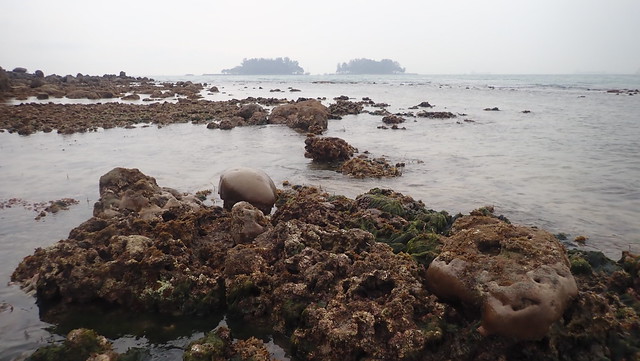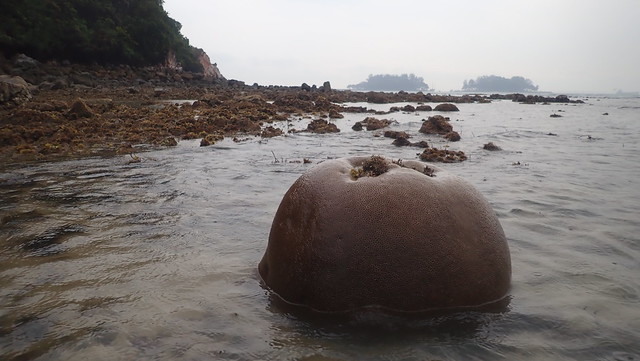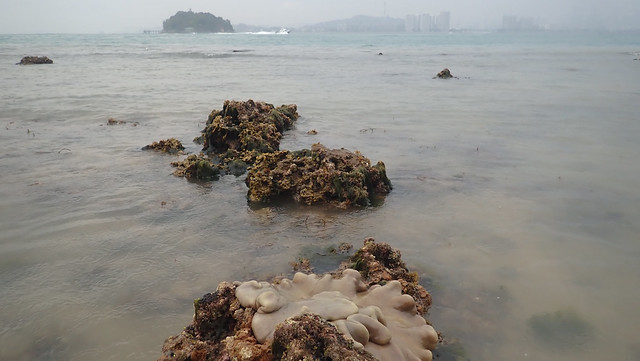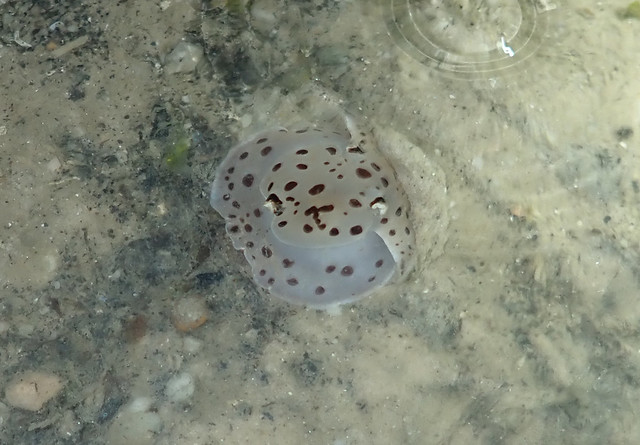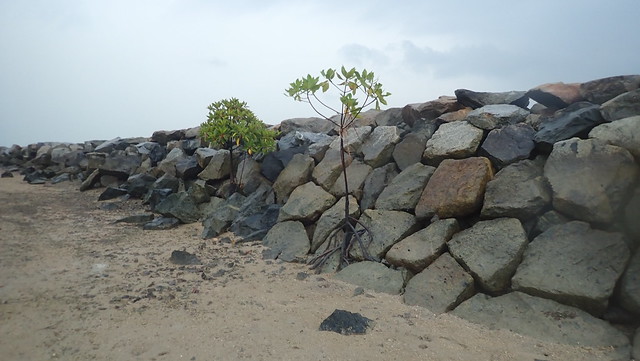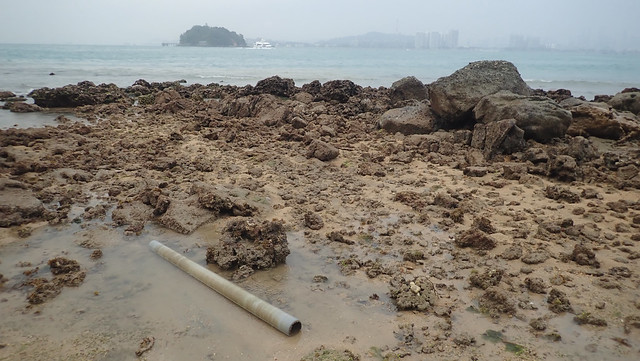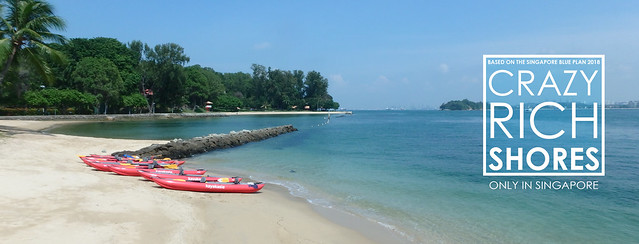Our first survey since access to St John's Island shores was closed to the public since Apr 2018 due to the asbestos issue. It rained!
But we managed a quick survey despite murky waters and wet weather. The corals and seagrasses don't seem very different from our last survey in Jul 2017.
Here's a glimpse of the shores before we got rained out.
We started at the natural rocky shore at the northern tip of the island, overlooking the Sisters Islands Marine Park. There have always been not many corals here. The situation seems similar to our last survey in Jul 2017, when I noticed that the corals on the shore don't appear to be recovering well from mass coral bleaching in Jul 2016.
Although I didn't come across any bleaching corals, some were pale or had pale patches. There were many Pore corals.
I saw one Sandpaper coral that was alright. There were also many Merulinid corals, some with pale patches. The water was too murky from the rain to check out the corals outside the seawall.
There were also some small colonies of Leathery soft corals of various kinds.
None of them were bleaching.
I also saw two Magnificent anemones, one Giant carpet anemone, and a Frilly anemone. There were also still many Black long sea cucumbers, and various sponges too. In the lagoon, I saw one Haddon's carpet anemone and the skeleton of the Thick-edged sand dollar. The rest of the team saw more cool critters! See their photos below.
But Jianlin found the best find: the cartoonish Moon-headed side-gill slug.
The seagrass situation seems similar to our last survey in Jul 2017. The Tape seagrass remains cropped, some shorter than others. But there were good sprinkles of Spoon seagrass with small to tiny leaves in most of the shore, with lush patches in the lagoon.
It was nice to see mangroves growing on the seawall.
There seems to be some erosion at the top of the seawall.
There were lumps of soft silty mud on the rocky shore.
And signs of large construction debris.
We huddled for a while under shelter as rain and lightning stormed around us.
The rain stopped just before we had to leave as the tide turned. As the sun sets, the lights of the Central Business District twinkles on the horizon.
The Singapore Blue Plan 2018 highlights the importance of St John's Island to our marine biodiversity.
The cluster of Kusu, Lazarus and St. John's Islands has been recommended by the Singapore Blue Plan 2018 for elevated protection status. The Blue Plan highlights that Lazarus, St. John’s, and Kusu Islands are established sites for coral nurseries as their shoreline offers ideal sheltered areas for growth of corals. Designating these islands as No-fishing Areas can bolster their rehabilitation.
Protecting a larger cluster of islands means zonation plans for use can be implemented to manage tourism and human impacts.
DOWNLOAD the Plan, SUPPORT the Plan! More on the Singapore Blue Plan 2018 site.
Photos by others on this trip
Jianlin Liu
Frances Loke on Little Green Men
Abel Yeo
Marcus Ng
Shawne Goh
Others on this trip: Parizad, Priscilla.

